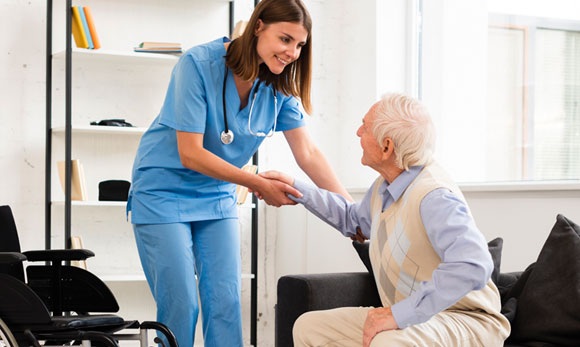Stroke Awareness

Stroke Awareness
What is a stroke?
Let’s talk about what is termed a brain attack or better known as a “stroke”. We won’t get too technical but as per all my blogs, I like to bring awareness and a little knowledge to you. Every year over 800,000 people experience a stroke, and it is America’s fifth leading cause of death, and the number one cause of long term disability. A stroke is produced when the brain doesn’t receive the proper amount of oxygenated blood flow. Stroke treatment has come a long way from decades past and can be treated and prevented. Strokes are medical emergencies that need to be recognized and then treated immediately.
What causes a stroke?
This happens by two methods: Hemorrhagic stroke is when you have a loss of blood from a leak in an artery that supplies the brain; or an Ischemic stroke (which dominates the majority of stroke occurrences) occurs when there is some form of blockage in your arteries to your brain preventing adequate blood flow. This blockage known as a clot can either be formed localized near your brain or can be formed away from your brain and travel upwards and lodge near your brain (i.e. near the heart and travel upwards to the brain). Some people experience a partial block which can present itself as a momentary or mini-stroke known as a transient ischemic attack (TIA). These usually go away on their own but it is indicative of a serious problem with high likelihood or precursor to a stroke at a later time. It is imperative to get seen by your physician if experienced.
As with most things there are indicators and flags to help you know if you are at risk of a stroke.
– Over weight
– Physical inactivity
– Heavy or binge drinking
– History of smoking
– Diabetes.
– Sleep Apnea
– Hypertension (high blood pressure)
– Illicit drug use (cocaine and – methamphetamines)
– Cardiovascular disease and other heart conditions
Familial history of strokes
Age, Race, Sex and Hormones also increase the chance of a stroke. People over 55, African American, male and people on hormone affecting medicines all increase a person’s chance.
Recognizing the signs and symptoms!
How do you know if you have had a stroke (the medical field calls these signs and symptoms)? If you suddenly without cause experience any of the following please consider immediately contacting emergency services.
1. Severe headache with no known cause
2. Trouble seeing or blurred vision
3. Onset of dizziness, loss of balance or trouble walking
4. Difficulty in speaking, experiencing confusion or confusion
5. Numbness or weakness in extremities- one sided or both sides, or in your face.
Preventing a Stroke…hmm?
These indicators are good to know but let us talk about how to try to avoid having a stroke.
Are they preventable and/or manageable? Yes!
When we examine the risk factors that increase our chances of having a stroke we can identify some personal things to minimize each of the underlying causes. First and foremost is controlling your diet which will assist in high blood pressure, controlling type II diabetes, weight management, high cholesterol and intake of saturated fat that leads to damaging your arteries. We also want to include exercising, managing stress, excessive alcohol consumption, and avoid illicit drugs use. Eliminate tobacco use, both first and second hand. Ensuring you get quality sleep i.e. correcting obstructive sleep apnea if you suffer from it.
F.A.S.T. Decision Making
If you think you are experiencing or suffering a stroke there is an acronym to help with your decision. It is F.A.S.T. (Face droop, Arm weakness, Speech difficulty, Time to call 911). Time is of the essence with stokes so don’t hesitate when you feel as if something isn’t normal. 9-1-1 is typically a better choice than driving yourself. They have training and equipment that can help you while enroot to a health facility.
Post Stroke
If diagnosed you must understand there will be a life style change, your doctor can prescribe medications (https://www.webmd.com/stroke/meds-after-stroke) to assist with preventing another stroke, but you have to do your part and follow the physicians’ orders.
Disclaimer: This article is intended as a friendly reminder with recommendations. It is not medical advice, direction or prescription of any sort. Please refer to professional services for any health-related questions, concerns and relief.

Contact us
Reach Us
Our dedication to caring for our clients is more than just a job. “It’s a way of life.” Let us help you maintain your independence today!
4751 Best Road Ste 400B College Park GA, 30337
Phone: (770) 808 6070
Fax: (770) 679 8593






